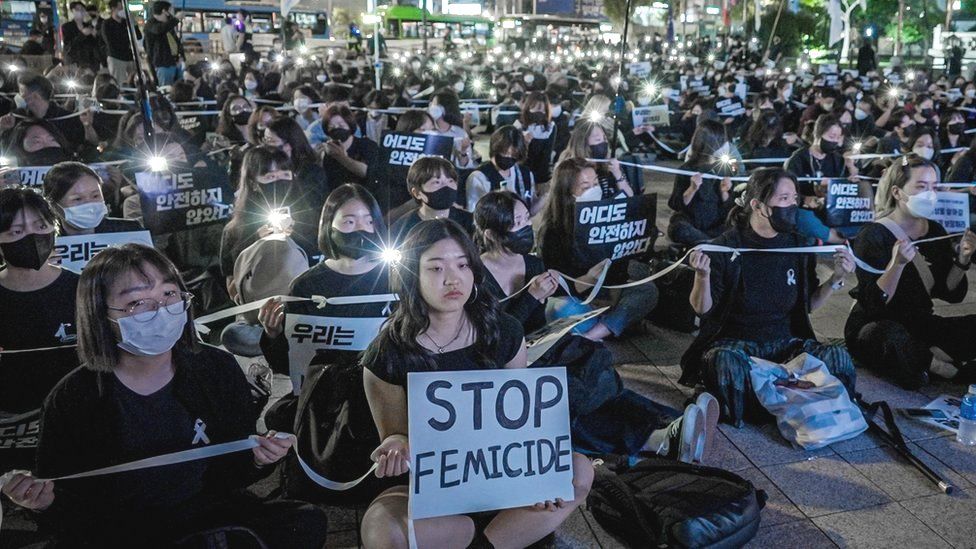ARTICLE AD BOX

Women held protests in Seoul last year after the brutal murder
By Jean Mackenzie in Seoul & Frances Mao in Singapore
BBC News
A man in South Korea has been sentenced to 40 years in jail for killing a female colleague who had reported him for stalking and harassment.
The case sparked outcry and calls for legal reform in South Korea, after police failed to act adequately on the victim's repeated complaints.
Jeon Joo-hwan, 31, was convicted of stabbing the woman to death in a subway restroom in central Seoul last year.
A Seoul court on Tuesday said it had been a "revenge killing".
Jeon, a subway worker, had become obsessed with his 28-year-old female co-worker, stalking and threatening her over two years, the court heard. He called his colleague more than 300 times, begging her to date him and threatening to harm her if she refused.
Despite a police investigation and a request to the courts for him to be detained, he was never imprisoned or given a restraining order. Authorities viewed him as "low-risk".
He was eventually charged and convicted of stalking. On 14 September, the day before he was due in court to be sentenced on those offences, he tracked down the woman at her work shift in a central Seoul subway station and murdered her in the public bathroom.
"From the defendant's testimony, it appeared he was determined to murder the victim unless she agreed to settle," the Seoul District Central Court said in its verdict, according to Yonhap news agency.
The court heard that Jeon believed the woman owed him damages as he had lost his subway job after she reported him to authorities.
Image source, Getty Images
Image caption,The murder prompted a wave of public grief and anger over the lack of protection for victims
The court on Wednesday also ruled against the prosecutor's demands for a death penalty for Jeon, stating that his young age meant he could still reflect on his crimes and atone for them.
In the aftermath of the murder, there were calls to strengthen South Korea's stalking law, which carries a clause stating that perpetrators can only be prosecuted with the consent of victims.
Critics argued this made it too easy for victims to be bullied into withdrawing their cases.
South Korea's justice ministry has agreed to remove the clause, but the bill is yet to pass parliament.
A fortnight ago, lawyers representing victims of domestic abuse and sexual violence called on lawmakers to pass the bill urgently. They cited the case of another woman who had been recently stabbed by her stalker.

 1 year ago
21
1 year ago
21








 English (US)
English (US)